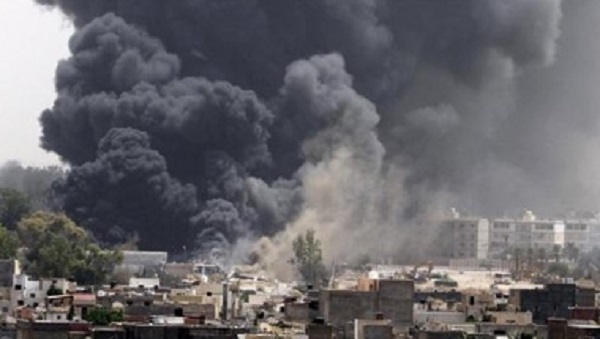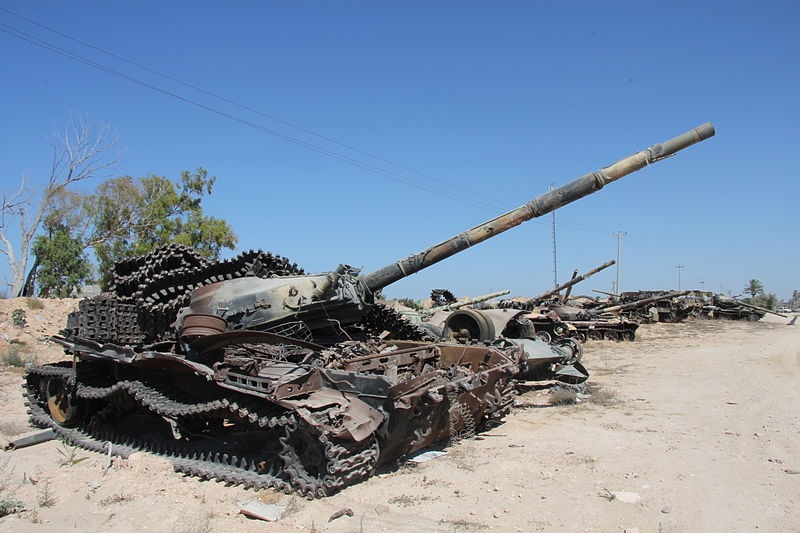online news world news
Libya’s Fathi Bashagha, appointed as prime minister in a challenge to a unity government in Tripoli, plans to take office in the capital “in the coming days”, he told AFP. online news
Libya’s parliament picked the former interior minister in February to lead a government to replace that of interim premier Abdulhamid Dbeibah, appointed last year as part of a United Nations-backed peace process to end more than a decade of violence in the North African country.
But Dbeibah has refused to hand over power before elections, setting up a showdown with Bashagha, named by the eastern-based legislature elected in 2014 and backed by military strongman Khalifa Haftar.
In May, Bashagha arrived in the capital Tripoli in the country’s west and attempted to take office there, sparking pre-dawn clashes between armed groups supporting him and those backing Dbeibah.
He backed down, he told AFP, to avoid bloodshed, but says he has since received “positive invitations” to enter the capital.
“All the roads are open into Tripoli and God willing we’ll be there in the coming days,” he said in an interview Friday, speaking via Zoom from his temporary base in the central city of Sirte.
“Some armed forces have changed their position and have nothing against us entering the capital.”
world news online news
Both Bashagha and Dbeibah come from the western city of Misrata and are backed by different forces in Tripoli.
Their rivalry is the latest configuration of the complex power struggles that have riven the country since the 2011 NATO-backed revolt that toppled and killed dictator Moamer Kadhafi.
- ‘Illegitimate’ government –
Dbeibah came to power following a landmark 2020 ceasefire that ended a year-long battle as Haftar tried, unsuccessfully, to seize the capital by force.
The transitional government had a mandate to lead the country to elections last December, but they never took place due to divisions over the rules and the presence of controversial candidates.
Bashagha argues that today, Dbeibah’s government is “illegitimate”.
“Its mandate is over and it failed to make elections happen,” he said.
For elections to take place, he added, “the only condition is that Libya only has one government. Two governments is not acceptable.”
Bashagha, a 59-year-old former fighter pilot trainer, was interior minister between 2018 and 2021, when he worked to reduce the influence of militias and bring fighters into state-run forces.

He has been seen as one of the few major Libyan actors to have good relations with foreign powers backing rival sides in the country.
But the emergence of two rival administrations — as was the case between 2014 and 2020 — has sparked fears of a return to an armed struggle for power.
Bashagha said he did not believe there would be a return to war.
But, he warned, “there might be chaos because of demonstrations”.
- ‘Solutions for Libyans’ –
His comments came days after protestors stormed Libya’s parliament building in the eastern city of Tobruk, demonstrating against the political elite — including both Dbeibah and Bashagha — and deteriorating living conditions.
Though it sits on Africa’s largest proven oil reserves, decades of stagnation under Kadhafi and its bloody conflict have left the country’s economy shattered and its population mired in poverty.
world news online news
The three days of demonstrations, fuelled by public anger over chronic power cuts that have shut down air-conditioning units at the height of summer, also hit other cities including Tripoli and the eastern city of Benghazi.
“I believe these popular demands are legitimate and the protests will continue after Eid,” Bashagha said, referring to the Muslim holiday starting on Saturday.
Dbeibah’s government has blamed the power cuts partly on fuel shortages caused by a blockade of key oil installations in Libya’s east, by groups demanding Dbeibah’s departure and a handover to Bashagha’s government.
But Bashagha insisted there was “no link”.
Once residents of the “Oil Crescent” region are “reassured that the revenues will not go to corruption, or theft or to other places, they will lift the siege on the oil exports”, he said.
The UN has been critical of the way Bashagha’s administration was appointed.
But Bashagha called on the world body “to adopt solutions that work for Libyans rather than just for the states that are interfering in Libya”.
“We’ve succeeded in avoiding any military confrontation but Libya can’t stay like this forever,” he added.
“There has to be a solution.”
par/jsa
© Agence France-Presse. All rights are reserved.
world news online news
Notes from APS Radio News
In 2011, when Libya’s civil war was engulfing the country, the UN imposed a no-fly zone, not long after government forces were pushing back against rebel forces and when it seemd that the army was gaining ascendancy.
According to reports and news sources like ANS, Qatar, the United States, France and the UK were supported rebel forces, some of whom consisted of militant Islamists and some of whom had been Islamist fighters in places like Afghanistan and Iraq.
Up to 25,000 people died in the fighting between the early part of March 2011 and November of that year.
Approximately 435,000 people were displaced
During that year, the mortality rate was about 5 in 1,000
The injury rate was about 4.5 in 1,000, according to Science Direct.com
Over 60% of the population was affected by the civil war and NATO’s air strikes, its reported indicated.

A considerable part of Libya’s infrastructure was destroyed, as a result of fighting between government forces and rebels and as a result of NATO air strikes, which were implemented in order to impose the no- fly zone authorization by UN’s Security Council.
In November that year, not long after, Muamar Gaddafi, Libya’s ousted leader was killed by rebel forces, then Secretary of State Hillary Clinton joked, “We came; we saw; he died”, after which she laughed derisively.
Reportedly, not long before civil war commenced, Mr. Gaddafi had implemented a monetary policy that would have placed his country on the gold standard.
In addition, before the civil war, Libya was reported to have one of Africa’s highest standard of living.
Many services were subsidized by the government, which was more secular than Islamic.
After rebel forces took over, there were reports of a number of beheadings.
General Khalifa Haftar one of the rebel leaders, reportedly was responsible for the assassination of one of the other generals in the rebel forces, earlier in the civil war.
As well, according to the Washington Post and other publications, years before the civil war, Mr. Haftar, who, as an opponent of Mr. Gaddafi, had fled his country.
Also, according to those reports, the time he was in the United States, Mr. Haftar was being vetting, supported and trained by the CIA, according to reports.
online news world news

